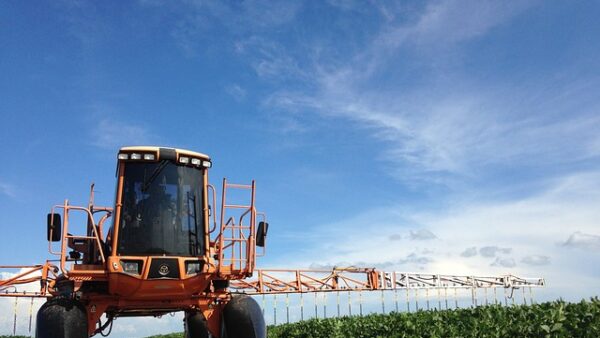With the Seed Regulatory Modernization review underway, the Canadian Seed Growers’ Association envisions a modern and agile seed certification system.
In the 1920s, the new federal Seeds Act named the Canadian Seed Growers’ Association (CSGA) as the authority for certification of seed crops in Canada. Since then, CSGA has played a prominent leadership role in the Canadian seed sector.
The Canadian Food Inspection Agency (CFIA), with the support of Agriculture and Agri-Food Canada (AAFC), has begun the formal process of Seed Regulatory Modernization (SRM) — a review of the Seeds Regulations. The goal is to align regulations with leading industry practices, improve consistency, reduce complexity, and strengthen consumer protection. Fully updated regulations will reduce unnecessary regulatory burden and provide flexibility to support innovation and changes in science and technology. SRM working groups are conducting in-depth analyses of different parts of the regulatory framework to develop options for change. This is an opportune time for the sector to think about the big picture and outline strategies for Canada to remain competitive in agriculture for years to come.
The CFIA will reach out to stakeholders next winter for broader engagement and consultation, so the time for discussion is now. As a result, CSGA is providing an overview of its recommendations and perspectives on SRM to help stakeholders appreciate what is possible for the system and spark conversation.
CSGA developed these recommendations in consultation with seed growers, plant breeders, provincial advisors, and company representatives. The concepts put everyone’s interests at the forefront, from variety developers, seed growers, government, and everyone who works to benefit Canadian agriculture.
Why the Industry Needs a Strong CFIA Presence
It is the CSGA’s position that the CFIA should continue to be ultimately responsible for the seed certification program.
The CFIA authorizes competent individuals and organizations to perform activities that result in official seed certification under its supervision. This model developed and evolved over many years, as government looked for savings and industry, which is faster and nimbler, proved it was capable. This approach has served seed sector stakeholders well, and the CFIA should continue to be responsible for Canada’s seed certification program.
The integrity of Canada’s seed certification system is essential to the reliable assurance of varietal identity and a thriving agricultural economy. Additionally, the international movement of seed often requires official assurances from government, like with the OECD Seed Schemes.
ROLES AND RESPONSIBILITIES
The CSGA is responsible for seed crop certification and varietal purity standards in Canada. The requirements for seed crop certification are published in the Canadian Regulations and Procedures for Pedigreed Seed Crop Production (Circular 6). CSGA’s mission is to advance the seed sector and seed certification system.
The CFIA is responsible for seed certification via the requirements in the Seeds Regulations and official policy and procedures documents. Official certification labels for Foundation, Registered and Certified seed are issued or approved by the CFIA and can only be used by CFIA-authorized persons. The CFIA also establishes the seed quality standards that apply to seed and oversees the system, including varietal identity verification testing and marketplace compliance monitoring.

What Needs to Change and How
THE VISION FOR REGULATORY CHANGE
SEED CERTIFICATION
Recommendation: CSGA’s delegated authority should be expanded to include certification of Foundation, Registered and Certified seed. CSGA is the regulatory authority for the certification of seed crops and varietal purity standards for seed.
While the CFIA is currently responsible for the certification of Foundation, Registered and Certified seed, CSGA is responsible for certifying Breeder and Select seed. If CSGA were responsible for all five seed classes, taking a more prominent role in the seed certification process, the day-to-day administration of the seed certification system would rest with CSGA, with the CFIA having a supervisory and support role.
Expanding CSGA’s role to include all seed classes would provide “single-window” services and support for stakeholders through one regulatory body.
Recommendation: The Seeds Regulations should recognize CSGA to establish technical requirements for seed certification in Canada. It is both difficult and expensive to amend regulations, given the current federal regulatory process. Science, technology, and business change faster than government can respond. Seed certification requirements need to be agile and responsive to this rapid change. Today, CSGA sets national standards for seed crop certification.
In the future, CSGA should also establish the technical requirements for the certification of seed for all agricultural crops in Canada, except for seed potatoes. Technical details about seed certification, including sampling, testing, and labelling, can be put into a document for which CSGA would be responsible. This document would have the full effect of a regulation but would be easier to adjust to keep up with the modern pace of technology and business.
CSGA’s Regulatory Services Committee, which reviews and recommends science-based certification requirements (Circular 6), has seed grower representatives from across the country and includes seed trade, seed analysts and CFIA representatives. Additionally, CSGA relies on crop-specific working groups to provide expert advisory and consultation resources.
These crop-specific experts include company representatives and plant breeders from across the country who participate in open and transparent dialogue on changes in seed crop certification requirements. A similar approach for establishing or renewing technical requirements for seed certification would ensure the system is efficient and effective, maintains competitiveness and facilitates market access.
DIGITALIZATION
Recommendation: The seed certification system should be digital end-to-end to facilitate a single-window approach to regulatory services delivery.
The current process for a seed professional to access services and fulfill regulatory obligations is inefficient and does not leverage technology.
There are information gaps that result in a loss of transparency and traceability, which impact trust and integrity.
Digitalization is necessary to efficiently achieve “seed-to-fork” traceability expected by a growing number of consumers. Removing process information gaps by implementing a single-window approach will enable end-users to make informed decisions based on the full picture.
Within CSGA’s SeedCert 2.0 platform, users will easily share information, record transactions, generate reports, and manage their certified seed production and sales seamlessly. Digitizing seed certification records will reduce costs and regulatory burden, enhance traceability, enable transparency, and provide value-added opportunities for seed sector stakeholders and their customers. CSGA has frameworks in place to manage data confidentiality and ownership and is strengthening the Association’s capacity.
CSGA is looking to leverage the industry-government partnership to consolidate key seed regulatory services and including information management. This would create one simple access point for system users.
VARIETIES
Over the past 20 years, more than 2,000 varieties of agricultural crop kinds have been registered for sale in Canada. The development of a hemp sector in Canada and a massive expansion of pulse production in Western Canada have only been possible due to the availability of varieties adapted to Canada. Variety registration and seed certification played significant roles in ensuring that Canadian producers had confidence in the seed they chose to grow these crops.
There is a growing demand for greater traceability and transparency in the food production system. Consumers seek more information about the food they buy, where it came from and how it was produced. The hesitancy of some consumers and markets toward plant biotechnology, the “greening” of the marketplace, and other consumer trends suggest that more information about the varieties that make up the food supply will be expected.
Recommendation: The CSGA should administer the Variety Profile Platform in support of enhanced transparency for the agri-food system.
The Seed Synergy White Paper proposed a digital platform with information on Canadian varieties, including agronomic, quality and pest tolerance characteristics, breeding methods, stewardship requirements, market restrictions, plant breeders’ rights status, and additional information of interest to producers and consumers.
CSGA already holds thousands of variety descriptions for seed crop certification purposes. This system could be further developed to provide other essential information. The expanded system would be a one-stop-shop. With gene editing and discussions surrounding Canada’s novel food regulations ongoing, this is a potential way to bolster consumer confidence and perhaps facilitate international trade.
CSGA is the ideal administrator of a comprehensive variety profile platform.
Recommendation: Variety names should continue to be restricted to certified seed.
Varieties are bred for agronomic traits and end-use characteristics demanded by buyers domestically and abroad. Variety names are used to ensure that those end-use characteristics are maintained throughout the supply chain.
The inappropriate use of variety names can result in unexpected crop performance, inaccurate delivery declarations by producers and an overall reduction in consumer confidence and trust in the seed regulatory system. Seed vendors and variety developers are also impacted. If the name of a variety is misused, the crop may not perform as expected and earn the expected financial returns for the farmer. This harms the variety’s reputation. Additionally, without adequate returns, future research investment in new varieties will not be made.
The appropriate use of variety names is critical to the success of the entire Canadian seed value chain, from variety development to processors. In Canada, only certified seed can be sold by variety name. The country’s variety naming system is unique; it needs to be preserved and strengthened.
Marketing seed by its correct variety name is an internationally recognized way to ensure new crop genetics and variety-specific characteristics provide benefits to all participants in the crop production value chain. In fact, seed regulation goes even further in the EU and the UK, where only certified seed can be sold.
An industry trend seen in the United States is to sell seed by a brand name instead of by variety name. A brand is often trademarked as a word, number, design, or other feature that distinguishes one company’s product from those of other companies. Currently, in Canada, neither a variety name nor any part of it is allowed to be trademarked. Care must be taken to avoid confusion between a brand name and a variety name. A variety must be ‘distinguishable, uniform and stable’ and can be officially verified; a brand, however, cannot.
Seed regulatory systems based on variety names promote transparency and facilitate resilient and sustainable seed sectors, including small- and medium-sized enterprises, whereas systems using branding, usually dominated by select companies, result in opaque markets.
It is CSGA’s position that the variety name requirements are maintained to continue to provide customer protection and deliver the broad societal benefits of a robust, transparent, and trustworthy national seed certification program.
Recommendation: CFIA should continue to be responsible for variety registration.
Variety registration is central to Canada’s seed varietal identity and crop quality assurance systems. In a world where consumer confidence is paramount, official evaluation, recognition, and monitoring of varietal identity are essential. The CFIA should continue to be the ultimate authority of this system. Innovative plant genetics will be more acceptable to consumers if they are overseen by government.
Consumers are looking for government oversight and confidence-building measures built into official regulatory programs. As a result, variety registration will become more important than ever.
Recommendation: Schedule III to the Seeds Regulations should be incorporated by reference and updated, with the CFIA as the responsible authority.
Schedule III lists the crop kinds that are subject to variety registration. However, amendments to Schedule III are governed by federal regulatory policy, resulting in a lengthy and arduous process.
As new crop kinds and types emerged (like hemp, food-type soybeans, quinoa, chickpeas), they were not added to Schedule III for various reasons. As a result, a fractured variety recognition system exists in Canada. CSGA determines whether new varieties of crop kinds exempt from registration are eligible for certification through its Variety Certification Eligibility Application (Form 300). The CFIA verifies certification eligibility for most varieties through the regular variety registration process.
CSGA believes CFIA should be the single and sole approver of varieties. As the regulatory system is modernized, running two parallel variety recognition systems concurrently is unwarranted. Given the CFIA is ultimately responsible for the varietal certification of seed in Canada, it should also be responsible for the official recognition of varietal identity. An administrative approach for official recognition of varieties outside of the variety registration system could be explored.














